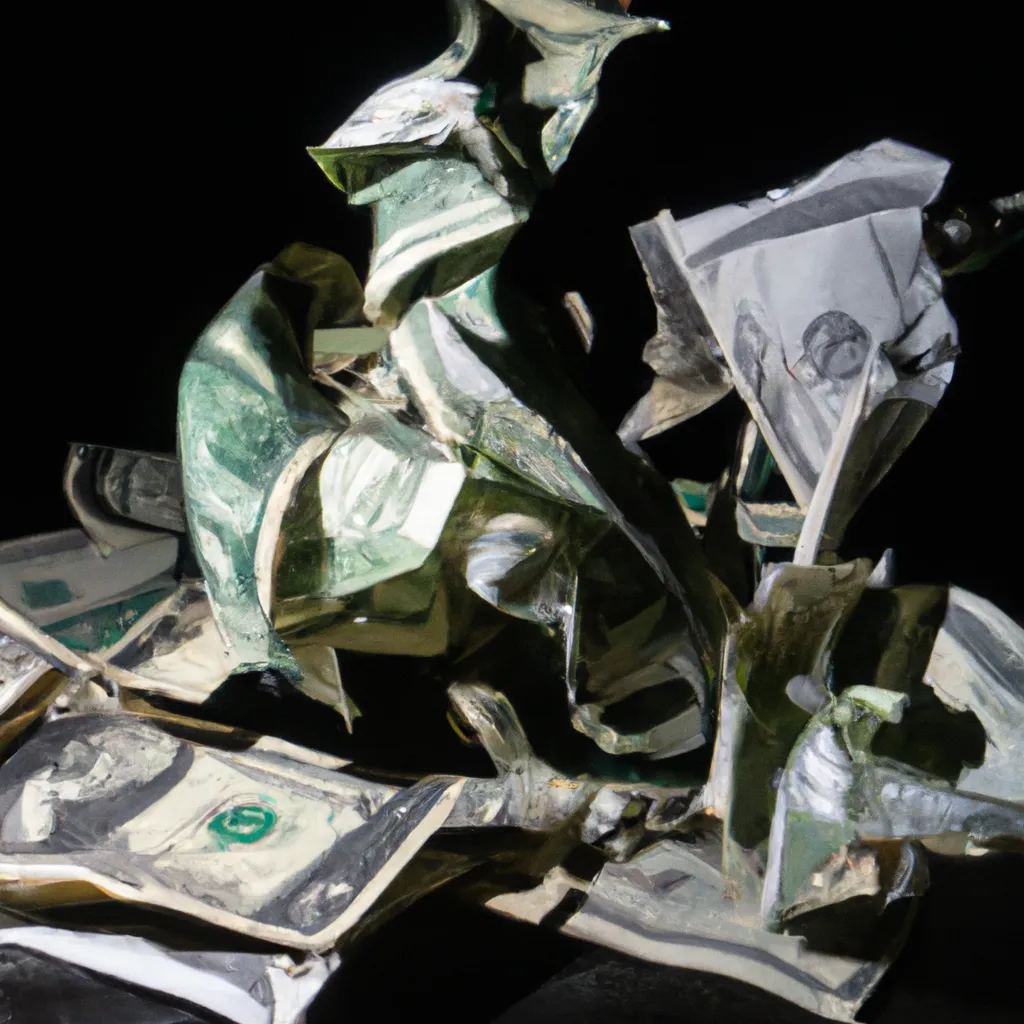The U.S. Economy: Close to the Abyss - Global Research

All Global Research articles can be read in 51 languages by activating the "Translate Site" button below the author's name.
To receive the Global Research daily newsletter with selected articles, click here.
Click the "Share" button above to email this article to your friends and colleagues.
Follow us on Instagram and Twitter and subscribe to our Telegram feed. Feel free to repost and share Global Research articles.
The U.S. government's debt is nearly $34 trillion.
What's worse, U.S. government deficits are only growing. As debt and interest rates rise, so does the amount of debt payments. As the situation in Ukraine, Gaza and Taiwan heats up, both parties agree to even more military spending. Moreover, even Republicans are reluctant to cut social spending or abandon the ObamaCare system because they realize that they are increasingly dependent on the votes of disenfranchised Americans, including people with low education, low incomes, ordinary workers, and black and Latino communities. The U.S. government needs to borrow and thus the debt is increasing - significantly.
It is bad for the US that fewer and fewer are willing to loan money to the US. The Chinese have stopped buying U.S. debt - now they are selling it. The Japanese have also stopped buying American debt and are now going to buy their own debt. The rich Saudis and Emiratis are also increasingly less inclined to buy US debt as they have their own megaprojects, such as the NEOM city, that require trillions of dollars to be spent. Read more here.
Even worse, in order to fight inflation, the Federal Reserve Bank of the United States has to cancel "Quantitative Easing" where the Federal Reserve Bank of the United States indirectly bought U.S. government debt.
With "Quantitative Easing," the U.S. Federal Reserve Bank was buying government debt, purchasing instead private debt owned by U.S. banks in exchange for new issuance of government debt. But now "Quantitative Easing" is being replaced by the reverse process of "Quantitative Compression". As the Federal Reserve Bank of the United States tends to sell more debt than buy it, the U.S. government's financial situation deteriorates even further.
What happens when a low quality commodity, such as U.S. government debt, becomes more and more affordable and fewer people are willing to buy it? As always, the price goes down, and when U.S. Treasury bonds become cheaper, the interest rate the U.S. government has to pay increases dramatically. High interest rates and increasingly high debt levels further exacerbate the U.S. government's deficit, causing an increased need to borrow. It's a vicious cycle for the U.S. government.
14 May 2025
13 May 2025
13 May 2025
14 May 2025
14 May 2025
The U.S. government's financial situation is so bad that it has to pay a real interest rate (i.e., an interest rate above inflation) of about 2.25% - almost as high as Italy's. Because foreign buyers and the Federal Reserve Bank are selling U.S. debt instead of buying it, the U.S. government is now completely dependent on private U.S. investors to finance its debt. Since only a certain amount of private investment capital is available within the U.S., the continuation of ever-larger purchases of U.S. government bonds by private parties should "flood" (i.e., replace) more and more investment in job-creating private enterprises. In response, the market interest rate in the U.S. is rising, not only on U.S. bonds, but also on stocks and real estate.
And as the required market interest rate rises on stocks and real estate, the price of these assets falls, creating either less profit or even a loss of wealth for U.S. private investors. In addition, there is a loss in private U.S. investment in companies and real estate, resulting in the loss of U.S. jobs.
The U.S. government deficit is now an extremely strong and indomitable force that is dragging down the U.S. economy.
Yes, the US economy may continue to grow, but like a swimmer wearing a lead belt, the US economy will become increasingly "tired" as it is inevitably dragged down. Sooner or later the drowning will come, and this realization among private investors may come quite suddenly, creating an unstoppable collapse of the entire U.S. financial system. A collapse that cannot be stopped, unlike the recent cases where the US government injected trillions of dollars into the private economy and banking sector to revive it, as this time it is such mega injections by the US government that are the cause and not the solution to this deadly disease that threatens the entire US financial system.
The whole world will feel the pain too. The worst part for the US is that there is no end in sight to this situation, no solution in sight. No party in the US is going to cut spending. The problem can only be solved by raising taxes. And not just a minor tax increase, but a colossal one that will also hit the U.S. economy hard. No party in the US is going to raise taxes. So it's only going to get worse - and faster and faster. A financial abyss awaits the United States.
Comment
Popular Offers


Subscribe to the newsletter from Hatamatata.com!
Subscribe to the newsletter from Hatamatata.com!
I agree to the processing of personal data and confidentiality rules of Hatamatata













